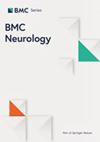脑卒中患者和照护者在从医院到家庭的过渡时期对所提供支持的体验和偏好:定性描述研究
IF 2.2
3区 医学
Q3 CLINICAL NEUROLOGY
引用次数: 0
摘要
从结构化的医院环境向家庭过渡对中风患者(PWS)及其照护者(CGs)来说是一项挑战,因为他们要在复杂的不确定因素中摸索前进。我们对管理家庭过渡的适当支持干预措施的理解还存在差距。在这项定性研究中,我们探讨了 PWS 及其照顾者在此期间的支持体验和偏好。2022 年 11 月至 2023 年 3 月期间,在出院后的六个月内,我们对 PWS 和 CG 进行了半结构式录音访谈。所有访谈均已誊写,并导入 NVivo 软件,使用反思性主题分析法进行分析。共进行了 16 次访谈,其中 9 次是与 PWS 进行的,7 次是与 CGs 进行的。确定了与他们的集体经历和偏好相关的四个主题:(i) 需要在适当的时间和适当的环境中分享有针对性的信息;(ii) 情感支持的重要性;(iii) 处于无助状态;(iv) 获取信息的不平等。这些经历反映了信息共享不足、沟通缺失、护理零散且不公平等问题;同时,我们希望采取多方面的方法来缓解焦虑和不确定性,尽量减少延误,并优化过渡期间的康复和参与。我们的研究结果强调,无论出院途径如何,即使有正式的支持系统,PWS 及其家人在过渡时期都会遇到挑战。在这一重要时期,PWS 和 CG 在过渡时期获得支持的经历以及他们的偏好突出表明,需要更好的护理协调、早期和持续的情感支持,以及公平获得量身定制的服务和支持。通过实施伙伴关系方法,改善 PWS、CG、医疗保健专业人员和支持组织之间的合作,包括共同制定目标,可能会改善这些经历。本文章由计算机程序翻译,如有差异,请以英文原文为准。
Experiences and preferences of people with stroke and caregivers, around supports provided at the transition from hospital to home: a qualitative descriptive study
Transitioning home from the structured hospital setting poses challenges for people with stroke (PWS) and their caregivers (CGs), as they navigate through complex uncertainties. There are gaps in our understanding of appropriate support interventions for managing the transition home. In this qualitative study, we explored the perspectives of PWS and their CGs regarding their support experiences and preferences during this period. Between November 2022 and March 2023, and within six months of hospital discharge, audio-recorded, semi-structured interviews were conducted with PWS and CGs. All interviews were transcribed, imported into NVivo software, and analysed using reflexive thematic analysis. Sixteen interviews were conducted, nine with PWS and seven with CGs. Four themes relevant to their collective experiences and preferences were identified: (i) Need for tailored information-sharing, at the right time, and in the right setting; (ii) The importance of emotional support; (iii) Left in limbo, (iv) Inequity of access. Experiences depict issues such as insufficient information-sharing, communication gaps, and fragmented and inequitable care; while a multi-faceted approach is desired to ease anxiety and uncertainty, minimise delays, and optimise recovery and participation during transition. Our findings highlight that regardless of the discharge route, and even with formal support systems in place, PWS and families encounter challenges during the transition period. The experiences of support at this transition and the preferences of PWS and CGs during this important period highlights the need for better care co-ordination, early and ongoing emotional support, and equitable access to tailored services and support. Experiences are likely to be improved by implementing a partnership approach with improved collaboration, including joint goal-setting, between PWS, CGs, healthcare professionals and support organisations.
求助全文
通过发布文献求助,成功后即可免费获取论文全文。
去求助
来源期刊

BMC Neurology
医学-临床神经学
CiteScore
4.20
自引率
0.00%
发文量
428
审稿时长
3-8 weeks
期刊介绍:
BMC Neurology is an open access, peer-reviewed journal that considers articles on all aspects of the prevention, diagnosis and management of neurological disorders, as well as related molecular genetics, pathophysiology, and epidemiology.
 求助内容:
求助内容: 应助结果提醒方式:
应助结果提醒方式:


